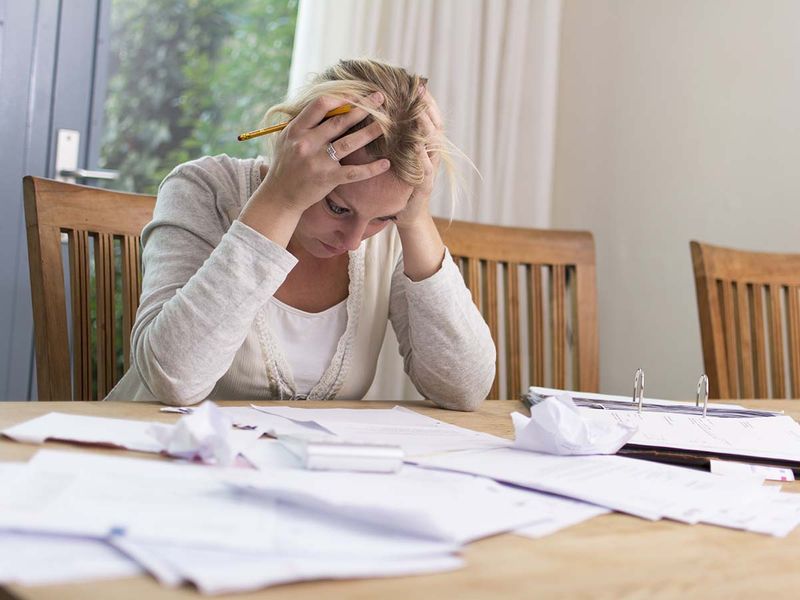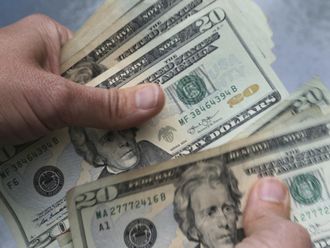
Dubai: While there is no denying the benefits of paying off debt, there is a common tendency to come up with reasons to avoid paying it back, especially when monthly dues turn dauntingly high. UAE-based financial coaches explain how we can beat such debt-induced mental roadblocks.
“If you're serious about getting rid of your credit cards and other loans, you might have to overcome a few mental barriers,” said Abu Dhabi-based financial planner Andrea Barbara, who coaches residents struggling with unmanageable levels of personal debt.
“However, that only prolongs the problem — and increases the costs. While it’s not so easy is to get behind the psychology of such roadblocks that lead to the vicious cycle of money anxiety, it is possible to find a workaround if you're serious about getting rid of your high-interest debt.”
According to Barbara and Mirin Raul, a money coach based in Dubai, here are three commonly observed reasons given by those in serious debt on why they don’t prioritise putting money towards paying down their dues.
Reason #1: ‘I don't want to spend my savings on debt payments’
It can be hard to come to terms with using your hard-earned savings on debt reduction and you would want to use it on something meaningful, like a vacation, a new gadget or appliance, or just putting it into savings.
“Even though it doesn’t make sense to spend your savings on debt reduction, you soon realise that the longer you wait to pay it down, the more you'll owe. The truth is you will have to pay it off eventually, and you'll be spending even more of your money on that debt,” said Raul.
“If you're not spending money on debt reduction now, you'll be spending more on it later. Use a calculator to see the cost of the interest you're accruing with the payments you’re currently making. You may then realise majority monthly payments are going towards just interest.”

Reason #2: ‘I will just pay the minimum now and I'll pay it off later’
When making monthly payments on high-interest loans like your credit card, paying only the minimum each month can help you avoid trouble with your creditors, but it doesn't put a dent to your high debt balances.
“The underlying problem with making minimum payments is that time equals money. The longer you wait to pay down a debt, the more interest you accrue. You may even see minimum payments creep up as you add more to the balance each year," added Barbara.
“Before you know it, a year or two has passed, the debt is bigger, and it’s easier to say "I'll pay it off later”. When you pay the minimum, you can get out of debt; but depending on how much you owe, it can take you 10 to 15 years. If you want to dissolve debt, make a larger sum each month.”
For instance, a Dh200 item at 12 per cent interest will have an actual cost of Dh279 per purchase if you pay only the minimum of Dh4 per month on it. Additionally, it will take four extra years to pay off the single purchase. This can help put your minimum payments in perspective of your larger debt.
Reason #3: ‘Everyone has debt, so it’s not that bad to not pay at times’
Although not all types of debt are the bad kind, excessive and unpaid form of debt can turn into a serious problem over time. Not to mention, it can not only drive down your credit score, but it also becomes difficult to get home loans, auto loans and other types of financing.
“Statistics indicate that although two out of three people worldwide have debt, a majority of them have good debt i.e. home loans. Those with credit card debt alone and carrying a balance month-to-month is far from a majority, but it’s certainly not a group you want to be a part of,” said Raul.
“So if you do find yourself in such a predicament, time to jot down your balances, interest rates, and how long will it take to pay each one off at your current rate? Can you consolidate loans? Can you transfer a balance to another card for zero interest for one year? That will help pay it down.”

Key takeaways
While debt can become a way of life for many, financial planners advise assuming that just because you have debt, you’re bad with money. However, they note that if paying off debt is starting to interfere with your financial goals, it can assumed that you have taken on too much.
“It’s not that you shouldn’t be concerned about carrying debt. Some of life’s decisions, such as buying a house or attending college, often comes with high debt. If the debt helped make you more money or will eventually save you money, then you shouldn’t worry about it,” added Barbara.
“Keeping your ‘why’ in mind when thinking about your debt can help you maintain a far more positive outlook and overcome any mental roadblocks that prevent you from paying it back. Such a mindset will help your repayment process feel more worthwhile and less discouraging.”
So while it can be daunting to try and take on the big debts first as you see so little progress month-on-month, Raul suggests doing it in reverse, that is paying smaller but high-interest balances first, in order to give you a sense of control, which will help you stay on course to finally pay off your debt.










